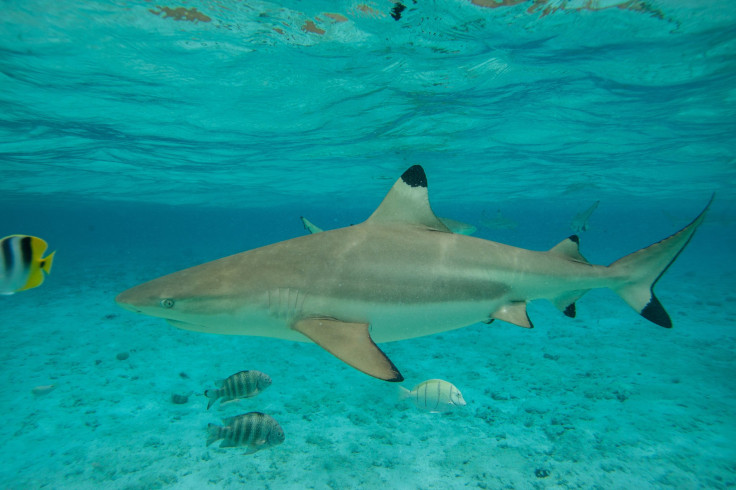Massive Shark Nursery With Rare Species, Egg Cases, Found Off Irish Coast

Scientists discovered a rare shark "nursery" with thousands of egg cases or “mermaid’s purses” deposited on coral skeletons in the waters 200 miles off the western Irish coast. The discovery was made by a remotely operated vehicle exploring the region’s cold-water coral reefs.
The nursery consisted of a large school of blackmouth catsharks, a relatively small species found throughout the northeast Atlantic. The camera also managed to capture the rare species of sailfin roughshark. These egg cases, or mermaid’s purses, are seldom seen in such vast numbers and it was an important, rare finding for the scientists.
The SeaRover, a remotely operated vehicle, sent into the ocean by Ireland’s Marine Institute and its partners, went up to 2,500 feet deep. The researchers behind the survery said in a statement they wanted to keep an eye on events at the location and record the eggs hatch in the future.
“No pups were obvious at the site and it is believed that the adult sharks might be utilising degraded coral reef and exposed carbonate rock on which to lay their eggs,” David O’Sullivan, chief scientist at SeaRover, said. “A healthy coral reef in the vicinity, may act as a refuge for the juvenile shark pups once they hatch."
“It is anticipated that further study of the site will answer some important scientific questions on the biology and ecology of deep water sharks in Irish waters,” O’Sullivan added.
The new findings were announced at INFOMAR Seabed Mapping Seminar in Kinsale, a town on the southern coast of Ireland, this week. During the event, the marine scientists played highlights taken by the Holland 1 underwater vehicle.
“We are delighted that this discovery has been unveiled at todays’ event, demonstrating the importance of mapping our seabed habitats in understanding and managing our vast and valued ocean resources,” said O’Sullivan. “Our data and team continue to make significant contributions to harnessing our ocean wealth.” The nursery was found within one of six special areas of conservation in Ireland’s enormous ocean territory.
The regions, which were the focus of the survery, are home to an enormous variety of sea creatures and fish species.
“Our key objective is to assess, protect and monitor Ireland’s rich offshore marine biodiversity so we can begin to manage our marine resources effectively,” said Dr Yvonne Leahy from the Irish National Parks and Wildlife Service. “Without knowledge of what lives in our seas we are at risk of never fully understanding and appreciating Ireland’s marine environment.”
© Copyright IBTimes 2025. All rights reserved.





















